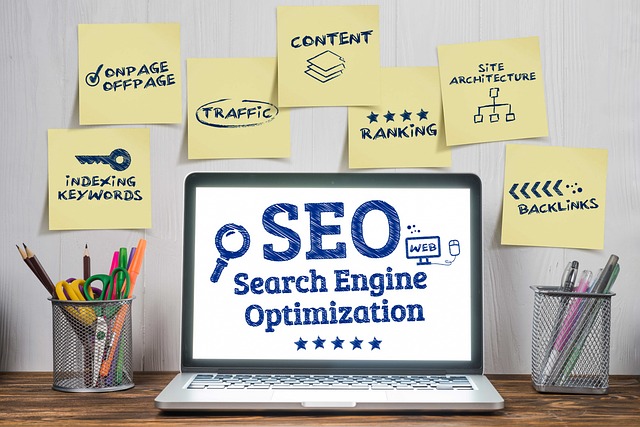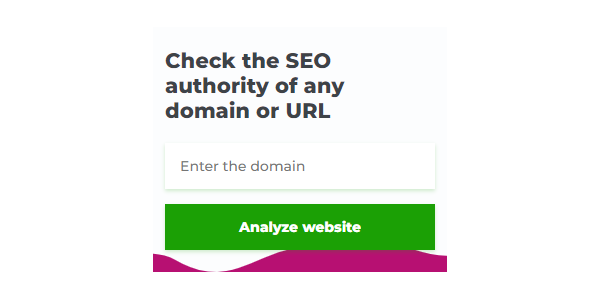Real Estate SEO
Real estate SEO involves optimizing the content of a real estate website, such as property listings, agent bios, and neighborhood information, to enhance its visibility in search results for relevant real estate-related keywords. This also entails obtaining backlinks from other websites to enhance the credibility of the site.
How SEO works
Consider all the methods a traditional business could use to attract customers to their physical store. These methods include ensuring their inclusion in the telephone directory, locating the store in a convenient area, using attention-grabbing signage, providing a delightful in-store atmosphere, and of course, offering desirable products or services.
SEO covers a broad range of practices and techniques, including the technical, aesthetic, and social aspects.
If you’re aiming to enhance search ranking by setting up a website or writing a blog post, whether directly or indirectly, then you’re engaging in SEO. Generally, this process requires at least a fundamental comprehension of the factors influencing search engines’ rankings for websites, pages, or content.
In the past, SEO merely involved ensuring that a webpage contained specific keywords and phrases so that search engines like Google would display the page to users when there was a match between the user’s query and the words on the page. However, this simplicity has evolved as Google now incorporates multiple ranking factors.
- Page speed (with an emphasis on mobile performance)
- How many sites link to yours (backlinks)
- User engagement
Even Google technicians are unaware of the exact factors that influence ranking and their respective importance since the system utilizes machine learning to constantly update itself on a daily basis.
From time to time, there may be a significant manual update (core) that can disrupt rankings and offer further clarification on what matters and what doesn’t. However, the main purpose of these updates is to align rankings with Google’s guidelines.
Overall, Google aims to support and provide web content that is:
- Helpful
- Trustworthy
- Original
- Relevant
- Engaging
- Accessible
When conducting a Google search, the results may vary from one person to another as Google creates a personalized profile for each user and presents them with search results that are highly relevant to their preferences. Thus, the rankings of the search results can differ depending on the individual.
While exploring the factors influencing Google’s rankings such as EEAT, NORA, and YMYL, it is important to aim for goal alignment with search engines like Google, whenever possible.
Bear in mind the objective pursued by Google: They aim to render a service, intending to offer the users an incredibly gratifying experience that would entice them to return. Consequently, Google will strive to exhibit websites and information that offer utmost benefit to its users.
Real estate SEO vs general SEO
Real estate SEO differs from general SEO due to its emphasis on local search. Given the highly location-dependent nature of the real estate industry, it is crucial for real estate agents to attain high rankings for searches including specific locations, such as “homes for sale in [city].”
Additional factors that contribute to real estate SEO include:
- Trust – Real estate is potentially a high-risk endeavor for most people, so trust signals and verifiable information about who’s involved are important.
- Site performance – Real estate marketing often involves high-res images, videos, and pulling data from multiple sources. Making sure your site runs smoothly is paramount.
- Usefulness – People usually visit a real estate website because they want to do something specific. They have intent, whether that be to search for properties in a specific area or use a mortgage calculator. In each case, what is being offered should work and work well.
Why you need real estate SEO
SEO is essential for real estate professionals as it enhances online visibility and boosts search engine rankings, thus facilitating the discovery of potential customers and resulting in an increased number of leads and sales. In essence, incorporating SEO into your real estate business is a financially-wise method to elevate your GCI.
As more individuals begin and conclude their real estate journey on the internet, the significance of this is growing. As evidence, the National Association of REALTORS® conducted a survey on home buyers in 2022.
- 47% of buyers began home buying process by searching online
- 96% used online tools at some point in the search process
It is evident from the aforementioned statistics that a website is essential for the success of the majority of real estate agents in the current industry. However, this is merely the initial step…
Only when a person searches for your business name specifically can you be reasonably certain that your site will be viewed, and even then it is not guaranteed. In every other scenario, you are in direct competition with numerous other websites, and it is imperative for your site to not only be good, but superior to stand out amongst them.
It is highly improbable to attract significant traffic if your website does not appear within the top 5 search results.
Is SEO really that good for realtors®
Real estate SEO provides Realtors with an effective lead generation tool that operates effortlessly, ultimately reducing the need for extensive marketing efforts and conserving time and resources. By making an initial investment, real estate SEO can drive increased traffic to a Realtor’s website, resulting in an augmented number of leads and closed deals.
SEO can assist real estate professionals in establishing their brand and authority in the local market, consequently attracting more business and increasing credibility and trust among potential clients and customers.
Lastly, ethical SEO techniques are often synonymous with effective business strategies. They encompass the principles of being supportive, influential, and respectful. Furthermore, adhering to these practices can also be a legal requirement in certain scenarios.
3 Reasons real estate agents should invest in local SEO
Not long ago, real estate agents were able to place an advertisement in the Yellow Pages and patiently wait for potential clients to make contact. Nevertheless, in present times, an astounding 97% of individuals prefer searching for nearby businesses through online means, and Google reigns supreme in this domain.
Traffic that does not require payment
Even with rapid changes occurring, advertising remains a significant cost for numerous small businesses. By improving your Google rankings, you can generate a continuous stream of free traffic, which can easily be converted into paying customers.
Fast outcomes.
It takes an average of 6 to 12 months for national and international companies to witness the outcomes of a new SEO campaign.
Having an incredible advantage as a real estate agent, your competition is limited to local agents rather than those located around the globe. Furthermore, a large number of these agents have not yet adopted local SEO practices. Consequently, implementing a focused campaign could lead to achieving a prominent position on the first page of Google’s local rankings within a mere 30 days.
Select your keywords
To begin, create a list of keywords related to your services. These could include terms like “real estate agent,” “real estate broker,” “realtor,” or “real estate companies.” Once you have compiled a comprehensive list, proceed to create a Google AdWords account, which is free.
There is no requirement to create or finance an advertising campaign; however, having an AdWords account grants you access to the free Google Keyword Planner tool. This tool enables you to enter your preferred keywords in order to gather information about their traffic volume and recommends supplementary related keywords that you may not have considered.
You can now proceed with selecting your final list of keywords. All keywords can be categorized into two broad types.
- Buying Intent: Buying intent keywords are a signal that a prospect is imminently ready for your services. For example, someone who searches for “buy a house in Cleveland” is probably looking at imminent relocation.Your primary focus should be on buying intent keywords, which produce the fastest results. Feature them on your homepage, and build your service pages around them.
- Research Intent: Research intent keywords are a clear signal that a prospect is just shopping around. She might be ready to buy or sell a home later, but not now. For example, someone searching for “home prices Milwaukee” is probably considering whether to buy a house.These keywords are of a lower priority, as they do not drive speedy conversions. Don’t get rid of them, though, as you can use them for blog posts and FAQs. These posts introduce you to prospects who might remember you when they are ready to buy or sell a home.
Optimize your keywords
Google My Business should be rephrased while maintaining the same meaning.
Your Google My Business page is a concise website featured in the “Map” section of Google. It offers a brief description of your business, augmenting your online presence. Additionally, it can expedite your rankings on search engine results since it is simpler to achieve a high ranking for a Google My Business page compared to a website.
To ensure optimal outcomes, it is essential that these elements are both accurate and comprehensive.
To verify your page, start by claiming it and going through Google’s verification process. Once completed, your business name will display a checkmark and the word “Verified”.
It is essential for your business to have accurate and consistent information including its name, address, and phone number (NAP) on every listing. To signal to Google that your business is local, use a local phone number instead of an 800 number.
Google mandates that categories should prioritize services rather than outcomes. In addition to Real Estate Agency, you may consider including Commercial Real Estate Agency and Real Estate Rental Agency if you offer such services. Endeavor to brainstorm 3 to 5 categories.
The description is a brief introduction to your company, concluding with a call to action, and should be between 100 and 200 words. It should follow a format resembling: {Your Company’s Name} provides {real estate services or equivalent} in {Your City}. {Include a few details about your company and reasons why customers appreciate your services.} Contact us today at {Phone Number} to schedule a complimentary consultation!
Ensure that your office hours are up to date and consistent across all of your online listings.
Including images can greatly enhance customer engagement and provide proof of your excellent work. Consider adding some pictures showcasing your office, team members, or delighted customers (with their consent, naturally) to demonstrate your credibility.
To ensure the same meaning, rephrased text: It is essential that your pictures are sharply focused, fall within the size range of 10KB and 5MB, and possess a minimum resolution of 720px x 720px. Additionally, it is advisable to substitute the ordinary Google My Business background image with a personalized image bearing your brand.
Optimizing a website
You should begin by optimizing your main pages (such as your homepage and service pages) for keywords that reflect buying intent. Later on, you can optimize your content pages (including FAQs and blog posts) for keywords that indicate a research intention. Here are the steps you should follow:
The homepage of your website should prioritize the title tag, equivalent to a chapter title in a book, as it is the most crucial component. It is advisable to keep it within 50 to 65 characters and follow this format: Real Estate Agent in {Your City} | {Name of Your Company}. After this, proceed to craft your meta description.
In {City}, {Name of Company} provides {real estate services, or similar} of exceptional quality. To schedule a free consultation, give us a call at {Phone Number}! Our H1 headline effectively describes our primary category as {real estate agency} in {City, State}.
Your page copy, the final element, should be clear, descriptive, and well-edited. Compose a 500 to 1000-word section to provide background details regarding your company, briefly introduce your main services, and conclude with a compelling call to action. Include your primary keyword seamlessly within the content.






